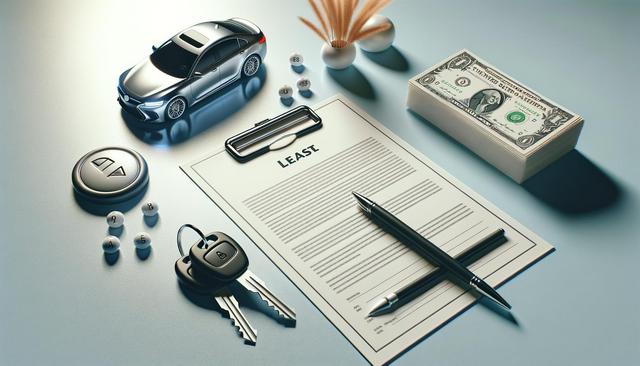Understanding How Car Leases Work
Car leases offer a practical alternative to purchasing a vehicle outright, particularly for those who prefer flexibility and lower monthly payments. Essentially, a lease is a long-term rental agreement that allows you to drive a new car for a fixed period, usually between 24 and 48 months. You pay a monthly fee based on the car’s depreciation during the lease term, plus interest and fees. At the end of the lease, you return the car or have the option to purchase it, depending on the agreement.
For those considering a Hyundai as their next car, leasing can be an appealing option. Hyundai vehicles are known for their reliability and modern features, making them a solid choice for leasing. Lease agreements often include warranty coverage for the duration of the lease, meaning many repair costs are covered, which can add peace of mind and reduce unexpected expenses.
Tailoring a Lease to Fit Your Lifestyle
One of the biggest advantages of leasing is the ability to customize the agreement to suit your driving habits and financial situation. Car leases offer a range of mileage options, typically ranging from 10,000 to 15,000 miles per year. If you drive more than the standard mileage, higher-mileage plans are usually available, though they may increase your monthly payment.
Flexible lease terms also allow you to choose a duration that matches your needs. Whether you want a shorter term to switch vehicles more frequently, or a longer lease to reduce monthly costs, options are available. Key factors to consider when choosing your lease terms include:
- Your average yearly mileage
- How long you plan to keep the vehicle
- Your budget for monthly payments
- Maintenance and warranty coverage
These features make car leasing especially appealing for individuals who enjoy driving newer models regularly and want to avoid the long-term commitment of ownership.
Comparing Leasing to Buying
While leasing and buying both have their advantages, understanding the differences can help you make an informed decision. Leasing is typically associated with lower upfront costs and reduced monthly payments compared to financing a car purchase. Additionally, because you’re not paying for the full value of the vehicle, you may be able to drive a higher-trim or newer model than you could afford to buy.
On the other hand, buying a car means you own it outright once the loan is paid off, which can be more cost-effective in the long run. There are no mileage limits, and you can modify or sell the car at your discretion. Leasing may not be the right choice for those who frequently exceed mileage limits or plan to keep their car for many years.
In summary, leasing provides:
- Lower initial and monthly payments
- Access to newer models with updated features
- Warranty coverage during the lease term
Whereas buying offers:
- Complete ownership and no mileage restrictions
- Greater long-term value
- The ability to customize or resell the vehicle
Key Considerations When Leasing a Hyundai
Before signing a lease agreement, it’s important to review the terms carefully. Start by evaluating the total lease cost, which includes the down payment, monthly payments, taxes, and fees. Also, be aware of what happens at the end of the lease—most leases allow you to return the vehicle, but some offer the option to buy it at a predetermined price.
Hyundai leases often come with competitive terms, and the brand’s reputation for quality and innovation makes it a popular choice among lessees. However, it’s still essential to clarify details such as:
- Wear and tear assessments at lease-end
- Early termination fees
- Excess mileage charges
- Included maintenance or service packages
Reading the fine print can help avoid unexpected costs later. Taking the time to compare lease deals and vehicle models will ensure you find a Hyundai lease that fits your preferences and lifestyle.
Who Benefits Most from Leasing?
Car leasing is particularly beneficial for drivers who value flexibility, drive within predictable mileage limits, and like to experience newer vehicles on a regular basis. It’s also ideal for professionals, small business owners, or anyone who may benefit from potential tax advantages associated with leasing, depending on local regulations.
Leasing might be a smart option if you:
- Prefer driving a new car every few years
- Want predictable monthly expenses
- Don’t want to deal with selling or trading in a vehicle
- Drive within the annual mileage limits
If you’re considering a Hyundai as your next car, leasing can provide a modern, hassle-free way to enjoy the latest features and technology without the long-term commitment of ownership. With the ability to tailor the lease to your driving habits and budget, it’s a flexible solution worth exploring.
Conclusion: Is Leasing Right for You?
Choosing between leasing and buying depends on your personal driving habits, financial goals, and lifestyle preferences. Leasing a Hyundai offers many benefits, including access to new vehicles with up-to-date features, manageable monthly payments, and warranty coverage that often spans the entire lease period. For those who enjoy updating their vehicle every few years and want a low-maintenance option, leasing is a practical route to consider.
Before making a decision, assess your needs, compare offers, and read the terms carefully. Whether you’re commuting daily, driving for leisure, or managing a busy family schedule, a well-structured lease can offer the flexibility and convenience you need.




Leave a Reply